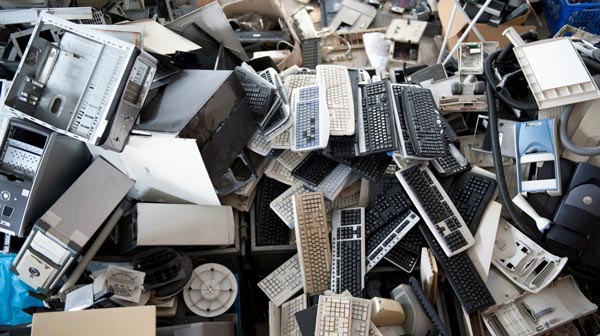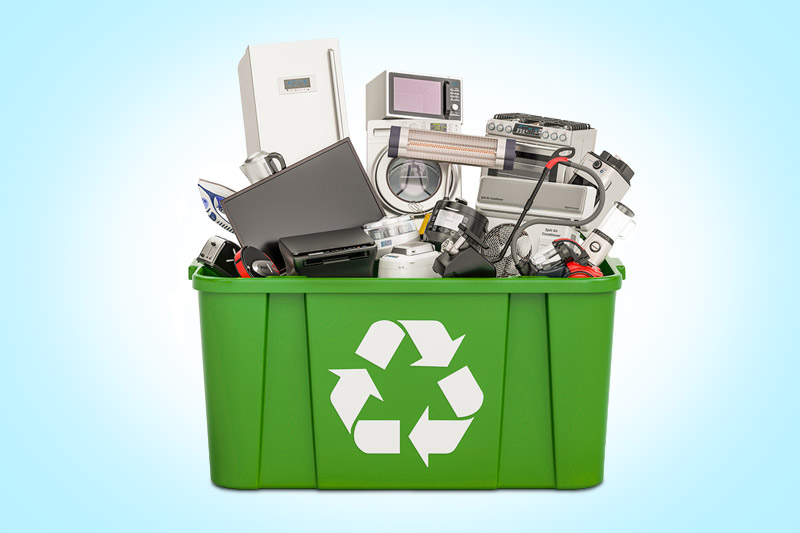Trusted Electronics Recycling Solutions: R2 Certification Sets the Criterion
Wiki Article
Navigating the Complexities of R2 Certification: Increase Your Digital Recycling Business Today
Navigating the elaborate landscape of R2 qualification can verify to be a difficult yet fulfilling undertaking for electronic recycling businesses looking to raise their operations. Exactly how can these steps be effectively implemented to really improve your digital recycling business?Comprehending R2 Certification Requirements
Browsing the intricacies of R2 qualification demands necessitates a detailed understanding of market requirements and compliance procedures. Achieving R2 qualification for electronic recycling organizations involves adherence to rigorous standards established forth by the Liable Recycling Practices for Electronics Recyclers (R2) requirement. This certification guarantees that companies properly manage electronic waste to secure the atmosphere and human wellness while also promoting the secure handling of data-containing devices.
To fulfill R2 accreditation needs, digital recycling companies have to implement durable information safety steps, proper ecological techniques, and strict health and wellness procedures. This includes establishing documented treatments for digital waste monitoring, carrying out routine audits to keep track of compliance, and providing recurring training for staff members to maintain finest practices.
Furthermore, R2-certified firms need to maintain transparent documents of their reusing processes, show liability in their downstream administration of digital waste, and focus on the reuse and recycling of materials wherever feasible. By comprehending and sticking to these rigid requirements, electronic recycling companies can boost their credibility, bring in more consumers, and contribute favorably to ecological sustainability initiatives.
Applying Best Practices for Conformity
Having a strong foundation in recognizing R2 accreditation needs is essential for electronic recycling services wanting to apply finest techniques for compliance. As soon as the fundamental standards are clear, the next action is to develop robust inner processes that line up with these needs - r2 certification. This includes developing comprehensive treatments for handling e-waste, data devastation, and overall operational operations. Regular personnel training and recognition programs ought to be applied to ensure all workers are fluent in compliance procedures.In addition to interior treatments, it is important to maintain extensive paperwork of all recycling activities. This consists of maintaining in-depth documents of the kinds and amounts of e-waste got, refined, and disposed of, along with recording any kind of information sanitization or devastation approaches made use of. Normal audits of these documents need to be conducted to identify any discrepancies or areas for enhancement.
Teaming up with qualified downstream vendors is another crucial aspect of compliance best practices. Guaranteeing that all partners in the recycling chain stick to the very same ethical practices and high standards can assist alleviate threats and boost the trustworthiness of your electronic recycling service. By implementing these best practices for conformity, digital recyclers can not only meet R2 accreditation needs yet likewise build a track record as a relied on and liable gamer in the industry.

Improving Internal Processes for Effectiveness
To enhance operational efficiency, digital recycling services have to maximize their internal workflows through methodical examination and improvement. Enhancing inner procedures is critical for ensuring that operations run smoothly and effectively. One way to achieve this is by implementing standardized procedures for tasks such as obtaining, arranging, taking down, and reusing digital waste. By developing clear guidelines and workflows, companies can minimize mistakes, minimize delays, and improve overall performance.Automation can additionally play a considerable role in streamlining inner procedures. Using software remedies for stock management, monitoring shipments, and coverage can assist eliminate hand-operated errors and simplify procedures. Additionally, purchasing employee training to guarantee that team are skillful in operation these tools can better improve efficiency.

Leveraging R2 Certification for Marketing Success
Getting R2 qualification can act as a powerful advertising device for digital recycling businesses seeking to differentiate themselves in the sector. This certification demonstrates a dedication to responsible recycling practices, environmental sustainability, and data security, all of which are significantly crucial to organizations and customers alike. By leveraging R2 certification in their advertising and marketing efforts, electronic recycling businesses can successfully connect their adherence to industry ideal techniques, building trust fund and reputation with click this site prospective clients.Furthermore, electronic recycling organizations can highlight their R2 certification in press launches, blog articles, and other content marketing initiatives to showcase their dedication to sustainability and ethical company methods. Leveraging R2 qualification in marketing approaches can help electronic recycling services stand out in a jampacked market, draw in environmentally aware consumers, and eventually drive business development.
Continuous Renovation and Development Approaches

One more important element of development method is purchasing innovation and technology. Welcoming innovative machinery and software application options can assist digital recycling services boost their processing capacities and fulfill the raising needs of the sector. Additionally, staying educated concerning the most recent fads and laws in digital waste monitoring is critical for adjusting service techniques and guaranteeing compliance with environmental criteria.
Furthermore, fostering a culture of continuous understanding and growth amongst straight from the source employees can lead to boosted efficiency and development within the company. By giving training programs and possibilities for skill enhancement, organizations can encourage their labor force to contribute effectively to the company's growth and success. Ultimately, by prioritizing continual enhancement and applying calculated development strategies, electronic recycling organizations can place themselves as market leaders and drive long-lasting sustainability.
Final Thought
To conclude, achieving R2 accreditation is important for electronic recycling organizations to demonstrate conformity with market criteria and ideal methods. By understanding the demands, applying efficient procedures, and leveraging certification for advertising purposes, read this article services can enhance their track record and attract more clients. Continual improvement and growth strategies will certainly further solidify their setting in the market and guarantee long-lasting success.Attaining R2 qualification for digital recycling organizations includes adherence to strict standards established forth by the Responsible Recycling Practices for Electronics Recyclers (R2) requirement.Having a solid structure in recognizing R2 qualification requirements is essential for digital recycling organizations looking to implement best practices for compliance. Making sure that all companions in the recycling chain stick to the very same high criteria and moral practices can help mitigate risks and enhance the integrity of your digital recycling service. In addition, digital recycling services can highlight their R2 accreditation in press launches, blog messages, and other content marketing initiatives to display their dedication to sustainability and honest company practices. Leveraging R2 accreditation in marketing strategies can help digital recycling services stand out in a congested market, draw in environmentally mindful clients, and ultimately drive business growth.
Report this wiki page